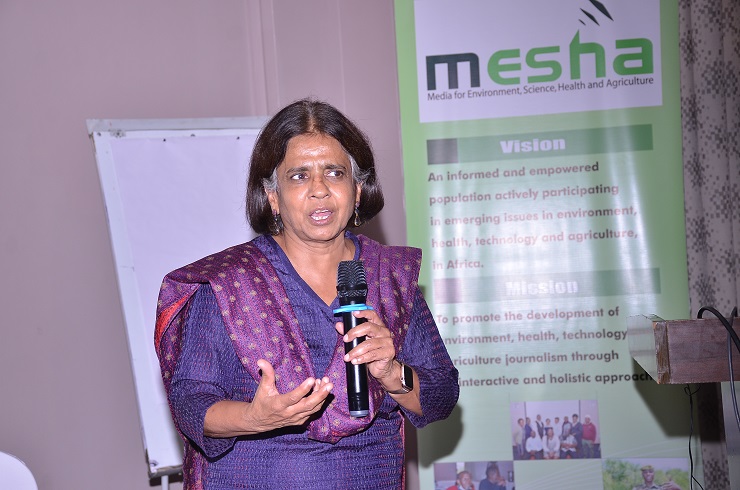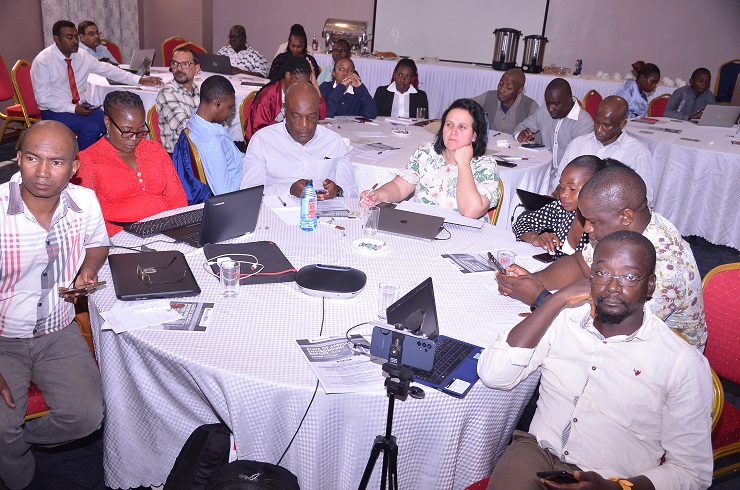
PHOTO|MESHA
By Njeri Murigi I healthjournalist@gmail.com
Carbon markets will not deliver enough climate finance to meet the needs of people, African governments have been told.
Speaking at the African Science Journalists Conference in Nairobi, experts urged the continent against thinking that carbon markets are the solution to unlock billions for the climate finance needs of African economies while expanding energy access, creating jobs, protecting biodiversity, and driving climate action.
The Conference was held under the auspices of the Centre for Science and Environment’s release of the Africa State of Environment (SOE). It was also supported by the Drugs for Neglected Diseases Initiative (DNDI). It was held from 11th October to 13th October 2023.
Amos Wemanya, from Power Shift Africa said that this is not the first carbon market that has been developed since the creation of the Kyoto Protocol, but previous markets have failed Africa and are likely to continue to do so.
“Carbon markets have been sold to Africa as delivering climate finance and supporting sustainable development. Africa’s experience, however, has been less promising. Carbon markets have so far failed Africa and are likely to continue to do so for a range of reasons,” said Wemanya.

PHOTO|MESHA
Carbon markets are a market-driven approach to reducing greenhouse gas emissions and promoting the transition to a low-carbon economy. According to the United Nations Development Programme, they are trading systems in which carbon credits are sold and bought. Companies or individuals can use carbon markets to compensate for their greenhouse gas emissions by purchasing carbon credits from entities that remove or reduce greenhouse gas emissions.
Carbon credits, also known as carbon offsets, are a unit of measurement that represents the reduction or removal of one metric ton of carbon dioxide or its equivalent in other greenhouse gases, such as methane and nitrous oxide.
Credits are awarded to projects and activities that reduce emissions or sequester carbon from the atmosphere. The more emissions are reduced, the more credits earned, and the more money is generated by selling them.
According to Wemanya, though the continent needs resources, this should not continue helping pollutants to pollute. He argued that in reality, carbon credits are pollution permits while carbon markets are a new form of colonialism.
“Academics, civil society, think tanks and various public institutions have been calling out the failings of carbon markets for well over two decades, recognizing from the start that they divert responsibility as they distract rich countries and companies from reducing their emissions and locking in high-emission levels in the Global North,” said Wemanya.
The Director General of the Center for Science and Environment (CSE), Sunita Narain said that though carbon markets have the potential to unlock investment for low carbon transition, they need to be designed in a way that works for the planet and people.
“The entire purpose of this market seems to be serving the interests of the retinue of project developers, auditors, and others who profit from the lucrative carbon business,” said Sunita.
She noted that it is a good tool, when used to drive investments but its current framing is not working for people or the planet.
“The name of the game is to over-complicate the design so that there is no accountability and it is open for fudge and fraud. If these markets have to work, design markets to invest in projects that will lead to a real reduction in emissions and put a floor price to carbon credit,” added Sunita.
According to her, the purpose of the current design of the carbon market, which is voluntary, is not about mitigating emissions adding that it could in fact end up increasing emissions in the world. This is because buyers of these credits increase their emissions, by saying that they have bought credits and so they are carbon neutral.

PHOTO|MESHA








